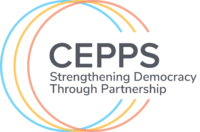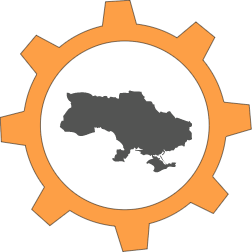#Whywevote
A 2019 IRI poll, conducted with support from the National Endowment for Democracy (NED), demonstrated that young people were less likely to vote in the upcoming elections than older Ukrainians. In response, under the USAID GEPT mechanism, CEPPS/IRI facilitated a video competition to mobilize a new generation of voters ahead of the 2020 local elections. As part of this program, CEPPS/IRI conducted weekly seminars for over 100 candidates, campaign team members, and young civic activists throughout Ukraine on how to create effective videos for advocacy. After the training, these activists were then invited to film their own creative get-out-the-vote (GOTV) videos and submit to the #WhyWeVote (#ЧомуМиГолосуємо) video competition. With their videos, these activists urged voters to take the elections seriously, not to neglect their right to vote, and to make their choice to define their future.
CEPPS/IRI received over 60 submissions to the video competition and the 15 finalists were shared on IRI Ukraine’s social media, as well as on the mediachange platform where the videos’ popularity attracted notice from Ukrainian public television networks. As a result, twenty-two broadcasters from ten oblasts shared the videos during their programming, which reached over three million viewers. The significance of social media and internet campaigning has gained new importance in Ukraine as candidates continue to campaign virtually in the context of COVID-19. Therefore, CEPPS/IRI found that training and engaging young people with applicable skills such as video editing, messaging, and persuasion helped young people to motivate their peers to vote in Ukraine’s 2020 local elections.
Democracy: From Theory
to Practice
Since 2018, over 5,000 students from 39 universities and colleges throughout Ukraine have completed CEPPS/IFES’ semester-long, university-level civic education course, “Democracy: from Theory to Practice.” The course is tailored for Ukraine and designed to foster students’ democratic values and attitudes while equipping them with the knowledge and skills that are essential for effective and informed citizenship in the digital age. Students are introduced to fundamental concepts of democratic citizenship, systems of government, civic participation, and human rights, while deepening soft and hard skills through an interactive teaching methodology and student action projects. Course alumni demonstrate a desire to be active citizens and a sense of efficacy that they can play a role in moving their democracies forward.
The university course was designed to actively facilitate a supportive and safe environment for students and educators by providing them with a space to comfortably share their diverse opinions and experiences, as well as to collaborate on action projects. During the COVID-19 pandemic, the course was digitized and offered on a virtual platform to foster further engagement during school closures. The multimedia platform is designed to engage students using a variety of formats, including video lectures, infographics, animated videos, and podcasts.
During the last component of the course, the student action project, students identify an issue in society that they recognize as a challenge, research and analyze their selected issue, and then conduct a project. Issues addressed by student action projects range from gender equality, minority rights, media literacy, and the use of digital technologies, amongst others.
Students developed relationships with their teachers and community partners who supported the action projects, which resulted in more community members recognizing that young people are crucial to advancing democracy. Participants also made connections with peers before, during, and after the course that led to future collaboration and long-term programmatic success.

